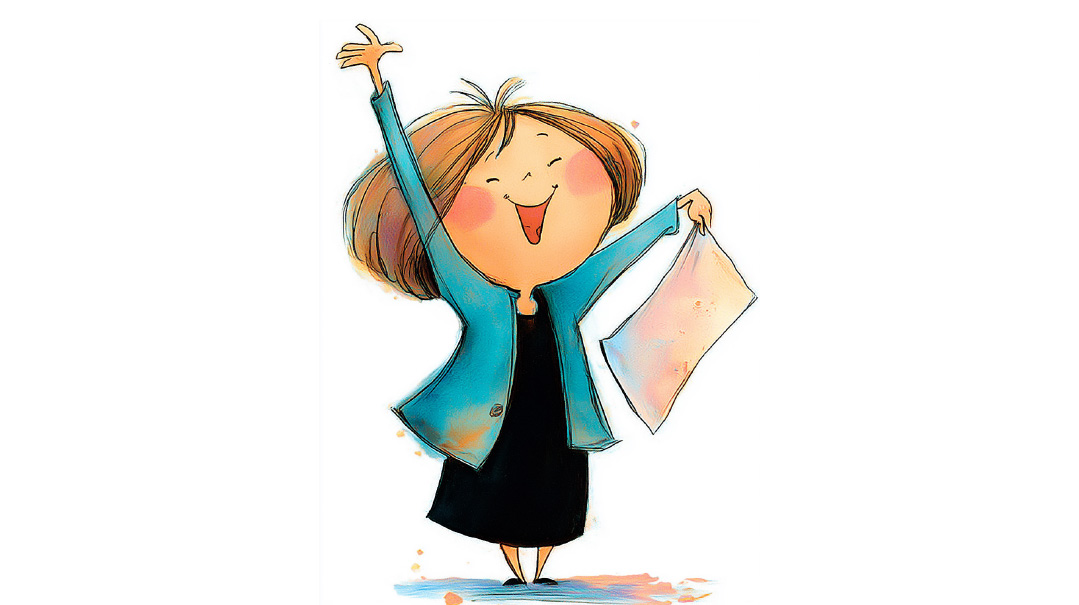Love and the Living Will
| April 11, 2018“This is a war you can’t win. I suggest you give a DNR. Continuing to provide him with care will only prolong his suffering”

"Does your husband have a living will, Mrs. Naim?” the nurse asked. My mother and I were backed against the wall of a corridor in the West Broward County Medical Center ICU in Coral Springs, Florida.* My father was in Room 1, two doors away, unconscious.
Mom looked at me and quickly looked away. “Um, I’m not sure. I think our lawyer in New York might have one.”
“But you’re his health care proxy, right? Even if he doesn’t have a living will, you can make decisions on his behalf. Is that correct?”
I looked at Mom. She’d always been a powerhouse, one of the first non-British women to be made vice president at Barclays Bank, assigned to different branches as a sort of one-woman SWAT team charged with whipping them into profitability. She had always appeared so much larger than her 5'4'' frame. I looked at her now, surprised at how small she suddenly seemed. Mom looked down at the beige tile floor. “I think so,” she said. “But I’m not sure. I’ll have to check with the lawyer.” I stood by silently, also avoiding the gaze of the nurse.
Of course Dad had a living will, and of course Mom was his health care proxy. We knew that. The nurse knew it, too.
“Well, call your lawyer, then. But please do it as soon as possible.”
She left. We went back to our hushed conference.
Like one of the snowstorms Mom and Dad flew to Florida to avoid, Dad’s symptoms started as a light flurry, the sky darkening as the flakes become larger and heavier, until suddenly everything and everyone was buried in silence as snow overtook all.
Mom and Dad had arrived in Florida for the winter, and Dad wasn’t feeling well. He was nauseous and unusually tired. Mom called me in Baltimore, where I live with my family. We were concerned, but people get sick. No real cause for alarm. Dad was diabetic, but his blood sugar was fine. When it didn’t pass after a few days, he agreed to see his doctor.
It was a heart attack.
My parents were both born in Egypt; they made aliyah to Israel in the late fifties, then moved to the US ten years later. Although English was their fourth language, they were fluent. Mom and Dad thrived professionally in the US, but certain aspects of American life seemed more difficult to negotiate than others. Health care was one such area.
I’d noticed that they usually sought out foreign-born doctors; the American-born ones spoke too fast, and treated them, with their thick accents and my mother’s dark skin, as if they were stupid. They didn’t need someone Israeli or even someone Jewish; any immigrant was a landsman. In Florida, for some reason, they’d chosen an American-born doctor.
When I spoke to Mom on the phone, she seemed dazed. Perhaps it was the American doctor, or perhaps it was Mom’s age, or that even though Dad had been diabetic for over 30 years and had had a hypoactive thyroid for ten, those were both endocrine problems. She was used to the lingo, the procedures, the prognoses, grim as they were. But a heart attack? Dad’s blood pressure and cholesterol had always been good; no one ever expected him to draw the heart card.
The avalanche of new information overwhelmed Mom. Whenever I asked a question about some contradictory information she had just given me, she got upset. After a few days, I asked her for permission to speak to the doctor myself; she agreed immediately.
Dr. Sullivan sounded exasperated when I asked her to explain to me exactly what was going on with my father. “I already explained it to your mother,” she said. “I can’t repeat this information over and over. I don’t have the time. If you want me to talk to you, I can talk only to you, and then you can talk to your mother.”
It must be exhausting to be a geriatrician in South Florida, I thought. How long before you stop feeling the pain of everyone around you: the pale, broken patients, the crumbling spouses, the anguished children? Before you tire of their confusion at the swirl of medical terminology?
As soon as I agreed to be the principal contact, Dr. Sullivan launched into her main point. A procedure for a pacemaker had already been scheduled. What she wanted was for Mom to sign a Do Not Resuscitate (DNR) order. If Dad were to have another heart attack, or to stop breathing, a DNR meant that the hospital staff would just let him die.
“Your father was a very sick man even before this heart attack,” Dr. Sullivan said. “His body is simply worn out. He’s like an old car that keeps breaking down. You can’t replace all his parts. If you want to give him a pacemaker, fine. But it’s not going to help. This is a war you can’t win. I suggest you give a DNR. Continuing to provide him with care will only prolong his suffering.”
No wonder Mom was so confused and upset.
“Why do we have to give you an order now?” I asked. “Can’t we make a decision whenever, if ever, it becomes necessary?”
“No. We need it now. What if something comes up at three o’clock in the morning? We’ll need to know what to do right then. There won’t be time for phone calls.”
I told Dr. Sullivan I’d need to get back to her with an answer. My next phone call was not to my mother. It was to my rabbi.
“Absolutely do not give them such an order,” Rabbi Katz said. “They’ll use it in a way you wouldn’t want them to. Let them call you if they need a decision.”
“But what if it’s three in the morning? The doctor said there might not be time to reach anyone.”
“So it will be at three in the morning. What difference does the time of day make? In fact, at three in the morning they’ll certainly find you. If and when they need you, they’ll find you, don’t worry. And you’ll find me.
“You have to understand, Mrs. Schreiber, the medical staff doesn’t look at the patient when making their decisions. They look at the family. And if they see that the family has given up, then they give up too. Don’t let them do that. Tell them, cry to them, ‘This is my father! Please! Please! Do everything you can to save him!’ ”
I consulted Rabbi Katz frequently, and his manner was always the same: calm and considered, unfazed by whatever situation I threw at him. But when he told me what to say to the doctors, his voice suddenly took on a trembling, pleading urgency that took me by surprise. Then, just as abruptly, he went back to his usual matter-of-fact tone.
“We just had a case last week of a 90-year old woman in a coma, on a respirator,” he said. “The doctors were pressuring her children to pull the plug. They refused. A few days later she came out of the coma, and off the respirator. The following week she was home. She’s fine now. You’ll call me if you need me.” He hung up the phone.
I had my answer. There was just one problem. I am Orthodox, but my parents are not. Actually, there was another problem. Both my parents had already drawn up living wills, requesting that heroic measures not be taken on their behalf.
Was it bullying if I convinced my mother to go against my father’s stated, signed, and notarized wishes? And what right did I have to ask my mother to make a decision based on a religious belief she did not share? But Dr. Sullivan had probably already demanded this permission from my mother, and had been unable to get it. Perhaps the decision you make in the carpeted comfort of a lawyer’s office feels very different when you’re standing at the deathbed of your loved one.
I flew down to Florida on the next flight. My brother Jacob was flying in from Arizona, and would arrive the following day.
When I arrived in Florida, I met Mom at the hospital. We stood in the hallway of the ICU, as I tried to gather the courage to initiate this conversation. The nurse’s entrance made it easier. “Did the two of you consult a rabbi before you signed these forms?” I asked Mom after the nurse left. While my parents weren’t Orthodox, they were traditional Jews who still kept many Jewish laws and customs. And as is common among Sephardic Jews, they held rabbis in great esteem. Especially my father. “Do you think it might have made a difference to Dad if he knew what a rabbi would have to say?”
“We didn’t think about asking,” she replied. “We just didn’t think about it.”
She left to call the lawyer. As soon as she returned, the nurse was back. The lawyer’s office was going to overnight the package of forms.
“Can they fax it?” the nurse asked.
“It’s long, maybe 16 pages,” Mom said.
“That’s fine,” the nurse replied, and gave her the unit’s dedicated fax number.
That scared me. What if they just took the fax and put it into Dad’s chart?
“No one will read it? They’ll give it right to me?” Mom asked. Apparently Mom and I had had the same thought.
“We’ll give it right to you,” the nurse confirmed.
Mom called the lawyer back, then, just to be sure, she went to stand near the fax machine. I went to visit Dad.
The first time I had walked into an ICU to see my father was 25 years earlier. I’d nearly fainted at the sight of him, and had rushed right back out. Light-headed and unsteady, I slumped to the floor. I was followed closely by my parents’ friend Susan, who was the head of pediatric intensive care at that hospital. She hoisted me up off the floor and looked me straight in the eye. “Put on some lipstick, go back in there, and smile,” she said. “You need to get control of yourself. Your father needs you.”
This time, it didn’t matter what I looked like. My father was unconscious. Dad’s ICU room contained the usual mix of high-tech machinery, blinking and bleeping in its mysterious code. A pink brochure about hospice care sat on the night table, along with a Do Not Resuscitate Order, awaiting a signature. But my eyes were drawn to Dad, the ashen specter in the midst of it all.
I had expected to find him lying silently in bed. Instead, every few minutes he sat up, his eyes opening wide, his mouth gaping and twisting, his entire body contorted into a picture of pain and terror. No amount of lipstick in the world could have handled this. I watched this macabre scene replay itself over and over again. Was this my goal? To prolong this?
Mom came into the room, and stood by me, the forms from the lawyer in her hand. Wordlessly, both of us watched Dad. I looked at the papers briefly, but I already knew what they said. The nurse came in and asked again about the living will.
“Yes, we have it,” my mother said. She looked at me. “But I want to discuss it with my son before I sign anything. He’ll be here tomorrow.” The three of us watched Dad.
“He looks like he’s in terrible pain,” I said.
“I know it looks like that,” the nurse replied, “but it’s actually just a reflex caused by an electrolyte imbalance following the heart attack. He’s not in any pain.”
I made myself believe her.
We picked Jacob up from the airport the next morning and took him straight to the hospital. Dad had improved tremendously overnight. He was conscious for a few minutes at a time, and the electrolyte spasms only occurred two or three times an hour.
“He looks great,” I marveled.
“He sure does,” Mom agreed.
“That’s great?” Jacob asked incredulously.
We filled him in on how Dad had looked before, on the living will, and on Rabbi Katz’s advice. Mom had already agreed to accept the advice; she wanted to be sure that Jacob would not feel we were betraying Dad.
We needn’t have worried. Jacob had been just two months shy of his bar mitzvah at Dad’s first ICU hospitalization; he told me later that he had spent most of his life afraid that Dad would die. He had no desire to rush it. The living will disappeared. Mom told the nurse she did not want to sign anything, and we prepared ourselves for the pacemaker operation, scheduled for the next day. As we left the room that day, I noticed that the hospice pamphlet had been replaced by a list of nursing homes in the area.
The operation was a success, and a few days later the list of nursing homes had also disappeared from Dad’s room, replaced by a list of cardiac rehabilitation facilities in the area. Although I spent almost 24 hours a day at the hospital, I never saw who kept replacing the papers.
My father lived another two months and sixteen days. He died on his 76th birthday, after yet another heart attack, yet another operation, yet another stint in rehab, after three resuscitation attempts, the last of which was unsuccessful. After Dad’s death, many people told me to remember him the way he was in his full strength, not how he was at the end. Yet it is remembering those last few weeks that gives me the most peace.
When Dad came home from his first stay in rehab, my mother and her sister Celly, who had come to help, spent the day preparing him an elaborate Egyptian feast. Aunt Celly told me that the scents and flavors of cardamom, turmeric, and cumin had transported them 50 years into the past, back to the tiny apartment where my parents were newlyweds and she was their favorite guest.
They sat up late on that homecoming night, laughing and reminiscing. “I haven’t seen your father look like that for decades,” she said. “He was so spirited, so full of life, so young. We all were. It was a magical night.”
I remember how, toward the very end, Dad broke a tooth that had anchored a bridge in his mouth. It seemed a cruel addition to his suffering that he could no longer enjoy even the simple pleasure of eating. The hospital’s gruel was inedible, but Jacob found the I Can’t Chew, I Can’t Swallow Cookbook online and had it shipped overnight. He spent the rest of Dad’s life preparing and spoon-feeding him homemade meals that were so delicious that even Jacob and Mom enjoyed them.
And I remember the last time I saw my father. He was in the hospital, after the second heart attack, scheduled to go to rehab the following day. I thought he’d be fine, and that it was safe to go home to my husband and five children, and then come back when Dad came home again. As I was leaving, I recalled there was a Jewish custom that after someone passes away, the family asks for forgiveness. I turned toward my father.
“Dad,” I said, “I know I wasn’t an easy child to raise. Please forgive me for all the trouble I put you through.” He turned to me with genuine surprise. Even though his teeth were broken, his words were perfectly clear. “What are you talking about?” he said. “You were the joy of my life.”
From the moment of his first heart attack until the day he died, Dad was never without pain. He never recovered from an operation or procedure before another crisis sent him back to the hospital. Was Dr. Sullivan right? Should we have spared Dad all that suffering? Should we have moved him to hospice and just let him go peacefully?
I don’t think so.
The directive of our rav was the greatest gift anyone could have given us. We withheld the living will, and in exchange we received life itself. Seventy-seven days of life with Dad. A life that was compromised, a life that was painful, yes, but it was life. Those 77 days — perhaps more than any other days — were precious. They have only grown more so over the years that have passed since then. On each one of those days we gave Dad our devotion and love, and we received his in return.
Dr. Sullivan was correct that this was a war we couldn’t win, but every battle we won — every extra day, every extra moment — was a triumph.
L’illui nishmas Eliyahu Yaakov ben Yaakov Eliyahu
*Names of people and places have been changed
(Originally featured in Family First, Issue 587)
Oops! We could not locate your form.






